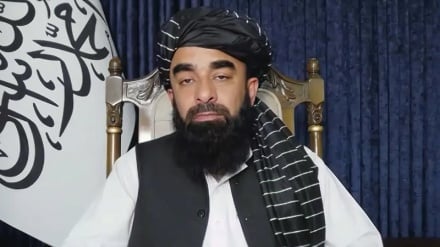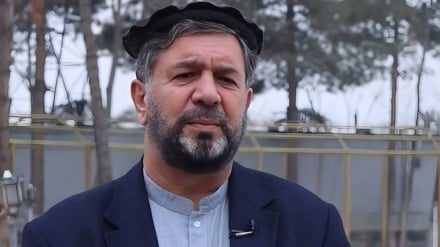Greater Mid East project of chaos: The management of savagery
The refugee crises coming out of the West Asia-North Africa region, generated by the forever wars of Washington and accompanying economic sanctions – or more accurately illegal unilateral coercive measures and economic terrorism – have consequently fueled xenophobia both in the US and abroad.
This, in turn, has fostered an ascendant wave of rightists. As author Max Blumenthal contends, “Trump’s election would not have been possible without 9/11/2001 and the subsequent military interventionism conceived by the national security state.”
The foillowing is an analysis by Roger D. Harris for ‘Global Research’, titled: “Greater Mid East project of chaos: The management of savagery”.
Destination Afghanistan was known as the big easy back in the halcyon days of the late 1960s. Hippies from throughout the affluent West hitchhiked to the capital, Kabul, where crash pads and hashish were cheap, and the locals were tolerant. Life appeared to be mellow in the scenic shadow of the Hindu Kush Himalayans. That was then.
Now Afghanistan is engulfed in year 18 of the forever US war with no end in sight. The war has gotten so old – the longest in US history – that the Pentagon Public Relations flacks changed the code name from Operation Enduring Freedom to Operation Freedom’s Sentinel to spruce up its image.
Half of Kabul is now in rubble. Education for girls is prohibited in areas controlled by the former US-allied Taliban, who thrive on poppy cultivations. US-backed warlords in the rest of this devastated land supply the majority of the world’s illicit heroin, visiting a plague of drug addiction on nearby areas and on the ghettos, rural wastelands, and hipster dens of the West. US attempts at so-called “reconstruction” of Afghanistan have cost $117 billion, eclipsing the price tag of the entire Marshall Plan for Europe.
So why is the US still in Afghanistan? The official explanation has something vaguely to do with the arch villain Osama bin Laden from Saudi Arabia who was last holed up in Pakistan before reportedly being assassinated by US forces and unceremoniously dumped into the sea eight years ago.
Max Blumenthal’s book “The Management of Savagery” provides a far more cogent explanation for the US wars in Afghanistan along with Iraq, Somalia, Sudan, Yemen, Libya, and Syria. Savagery reads like a real-life whodunit tracing the shadowy back channels of the CIA, FBI, DIA, and NSA piping extremists around the West Asia-North Africa region to create chaos only to find their assets turning against them. Besides being well written, the analysis of the maturation of the neoliberal imperial project by the world’s sole remaining superpower illuminates the current bi-partisan consensus for militarism.
The collapse of the Soviet Union left a geopolitical power vacuum and an opportunity for the US to more aggressively exert its imperial will. The ensuing politics of chaos produced some strange bedfellows: “human rights” thinktanks with Persian Gulf monarchies, anti-Semites with Zionists, the US security state with the so-called jihadists, and neoconservatives with establishment liberals.
Bin Laden, according to the book “Savagery”, had a master plan to create “full chaos” in the region, which he believed would precipitate the collapse of local regimes so that the culture of extremism could supersede them. Dovetailing this scenario was the neocon plan for regime change in regional states not subservient to US dictates and Israeli expansion. “In the global war bin Laden envisioned,” Blumenthal reports, “these [US] foreign policy fanatics would make the perfect partners.” Leading the charge were neocon Republicans like John Bolton and Elliot Abrams with the Project for the New American Century (PNAC), later to be joined by liberal Clinton Democrats.
Both foreign extremists and domestic militarists needed a precipitating incident, what the PNAC envisioned as a “catastrophic and catalyzing event.” That came with the suspicious 9/11/2001 incidents in New York. Blumenthal finds credence that the US government likely had some foreknowledge of the attacks, but accuses some Truthers of inadvertently running interference “for the imperialist power they claimed to disdain” by “omitting any historical discussion of the American government’s relationship with the forces directly implicated in the attacks.”
The Authorization for the Use of Military Force was passed just five days after 9/11 as a joint resolution of Congress with only one dissenting vote. “Congress thus voluntarily abdicated its constitution authority and,” according to Blumenthal, “gave its blessing to America’s forever war.” The Patriot Act followed a month later, “granting the executive branch unprecedented wartime powers to investigate and prosecute Americans.”
The neocons and the alt-right have been able to mainstream anti-Muslim politics in the US. Meanwhile the liberal “responsibility to protect” (R2P) doctrine has created popular support for forever war “by weaponizing the discourse of human rights to justify the use of force against governments that resisted the Washington consensus.” The R2P liberals achieved what the right could not.
Blumenthal explains: “In the era of Russiagate, when so many liberals cling to institutions like the FBI and NATO as guardians of their survival, the dastardly record of America’s national security mandarins has been wiped clean.” The forever wars are “marketed to the Western public as clinical exercises in freedom-spreading” with a “dual layer patina of patriotic hoopla [for the right] and humanitarian goodwill [for the liberals].”
The refugee crises coming out of the West Asia-North Africa region, generated by the forever wars and accompanying economic sanctions (more accurately, illegal unilateral coercive measures), have consequently fueled xenophobia both in the US and abroad. This, in turn, has fostered an ascendant wave of rightists. “Trump’s election,” Blumenthal contends, “would not have been possible without 9/11 and the subsequent military interventionism conceived by the national security state.” The national security state did not arise with Trump, but “has maintained a steady continuity between successive administrations.”
Unwanted refugees are not the only inconvenient byproduct of the forever wars in the West Asia-North Africa region. The US security state’s alliance with the mujahideen to overthrow the Soviet-friendly government in Afghanistan – a pattern which is has been repeated in each subsequent misadventure in the region – has created a “disposal problem” of what to do with these US-armed combatants.
For Americans, the tragedy of 9/11 was just the most dramatic example of the “disposal problem.”
Blumenthal warns: “The plague of international extremism that the United States helped to unleash through its covert interventionism in Cold War-era Afghanistan, was to expand and metastasize…”
The neoliberal imperial project, a symbiotic association of liberal “military humanism” and rightwing straight-up militarism, is now showing signs of undoing.
According to Blumenthal: “Through covert operations and overt invasions, America’s national security state had destabilized entire regions, from the Levant to North Africa, unleashed a migration crisis of unprecedented proportions onto Europe and spurred an inevitable right-wing backlash that was unraveling the neoliberal consensus they sought to protect.”
The focus of Savagery is on the policies and actions of the US and its allies, the deleterious effects it has had on the people of the region, and the blowback it has had at home.
AS/ME


